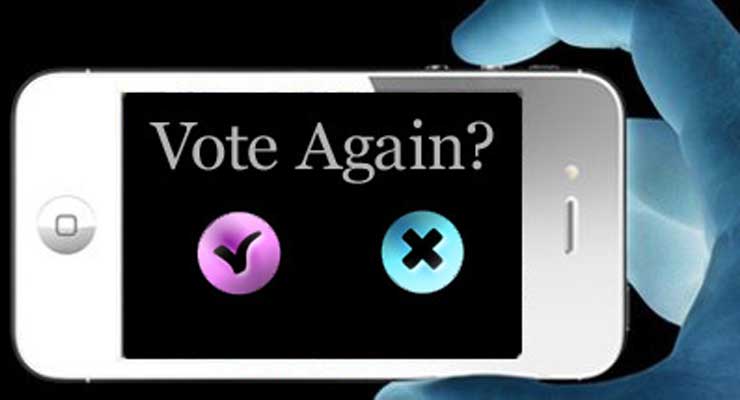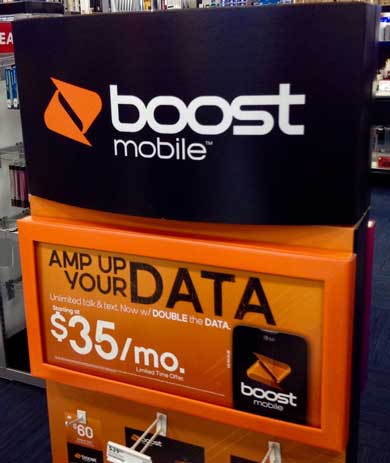
In an effort to help fight against voter suppression and the strict voter ID laws that many Southern states and Republican led states have passed, cell phone company Boost Mobile has been trying to figure out ways to help combat racial and class inequality in voting. Amazingly, among the chief problems dividing the races and classes in the United States on election day include just having free time to vote or even register to vote.
“It was an unrepresented civic action, credible demonstration of a company who stood up for a majority, for a minority, for voter equality,” said Aine Carney, head of Boost Mobile’s outreach center. Boost mobile has many their stores in lower and poorer neighborhoods, areas where voter participation is usually down and where time is usually the biggest obstacle.

Numerous studies have shown that areas that have been the most affected with problems during election day have been lower class and minority neighborhoods where Boost Mobile has most of their stores. “In total, we offered 5,000 locations in 48 states,” Carney continued. “Most of them declined.” Six counties accepted the offer, including four in California and two in Chicago.
The results for the precincts in Chicago turned out to be the highest voter turnout in the history of that precinct on election day 2016. “If early voting is any indication, I think we’ll have a very solid turnout,” said Marisel Hernandez, a member of the Chicago board of elections, said on election day 2016. Unlike many Republican led states and Southern states, Chicago and Illinois offer same day registration on November 8, which has many people who have two or three jobs and do not have the time to register to vote.
The same day voter registration is in stark contrast with many laws that have been passed in Southern states, and states like Arizona. Those states have passed laws that restrict when people can register and generally have shorter than normal times for voting booths.
“We will definitely do it in the next election,” Boost’s social media manager, Jeremy Agers said recently.
“This was always about more than selling telephones,” Agers continued. “It was about righting a wrong for our customers.”
Many feel that the extra and stricter laws regarding voting place additional burdens on the poor and minority neighborhoods.
On average, African-Americans have an average 20-minute waiting time during election day, the most out of any racial group. Hispanics have an 18-minute average wait time and Asians have a 15-minute average.
Nine states have passed tougher voter laws which many have labeled “voter suppression laws.” All nine of those states are in the South, with North Carolina being in the forefront since the 2012 Presidential election. North Carolina has been a battleground state in the last couple of Presidential elections and has played an influential role in deciding the race.
The Supreme Court was deadlocked on the issue of North Carolina’s voter restrictions which it hoped to have in place for the 2016 Presidential election. The set of laws ended same day voter registration, ended weekly early voting, and ended out of precinct voting. The deadlocked ruling of 4-4 was due in part because of the death of Antonin Scalia leaving a vacancy on the court not filled till President Donald Trump’s appointment a couple of months ago.
Alabama, is another state that has passed strict voter restriction laws. The new laws include tougher voter id laws that require Alabamans to have ID when they are at the polls. “The reason I supported the bill was to ensure that we had credibility and integrity in the electoral process,” said John Merrill, Alabama’s Secretary of state. However, many feel that the effort is used to decrease participation and intimidate those who do not have the time to vote.
With a divided history when it comes to Presidential election history, Alabama has been labeled a safe Republican state since the late 1960s. President Trump won the state in the 2016 election 62.1 percent to Hillary Clinton’s 34.4 percent. Alabama started voting Republican in the late 1960s and has been a Republican state since the late 1960s, although third parties have done well in the state most notably, the Dixiecrats.
These are just two examples of southern states passing stricter laws, however there are other cases in which states have made attempted to make similar laws. If voter fraud is a problem and people are taking advantage of the system, then laws should be passed, but if these laws are being passed in order to disincentive people to vote, then they should be challenged. We should be making it easier for people to participate in our Democracy, not harder.
Links to Sources:
- The Root: https://www.theroot.com/this-is-what-happened-when-boost-mobile-came-up-with-a-1794712712
- NBC news: https://www.nbcnews.com/news/nbcblk/new-voting-laws-south-could-affect-millions-african-americans-n639511
- Alabama election History Ballotpedia: https://ballotpedia.org/Alabama
- North Carolina election History: https://ballotpedia.org/North_Carolina
Leave a Reply